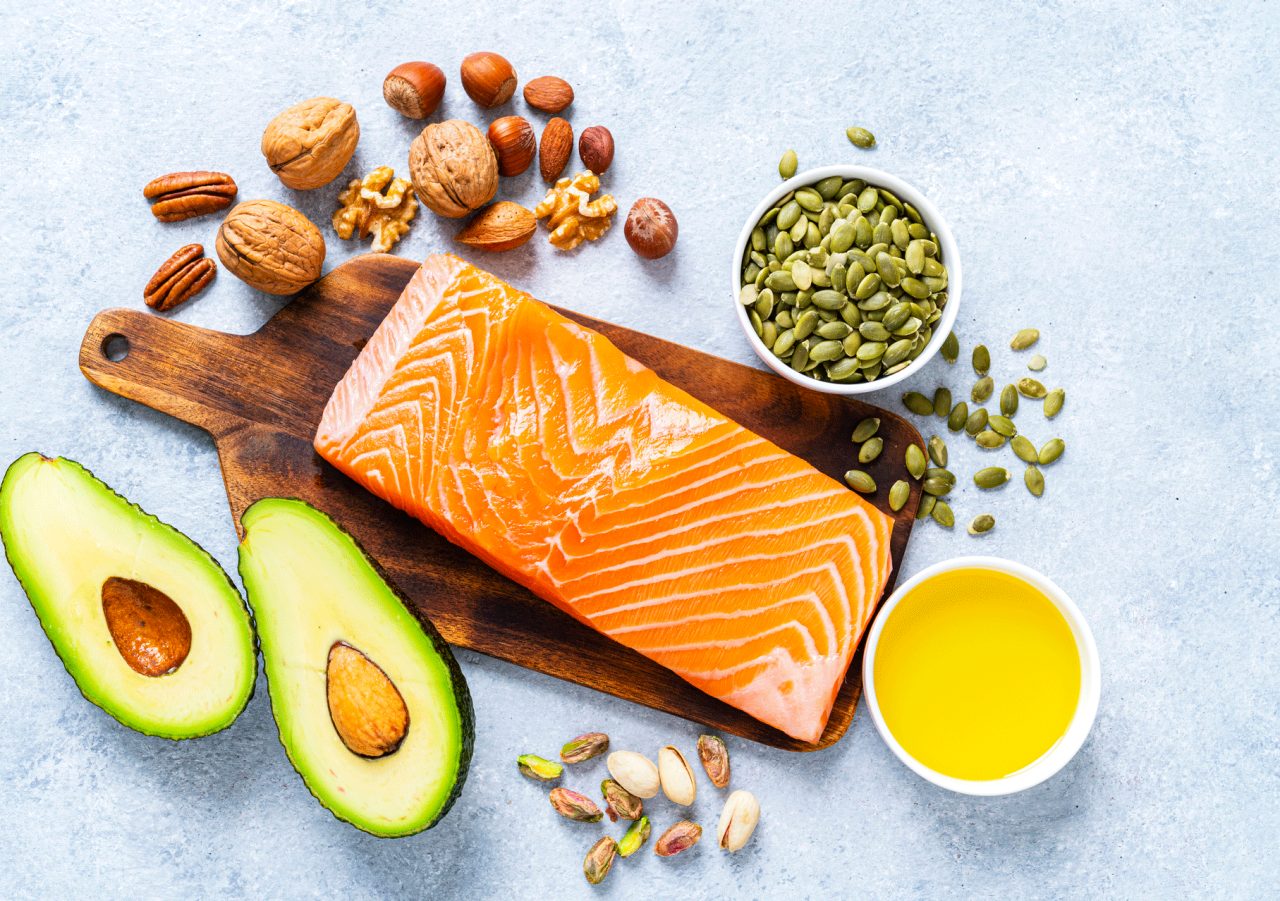Eat Good Fats Instead of Fat-Free or Low-Fat Products

Experts say that dieters shouldn’t focus on replacing all fatty foods with fat-free or low-fat choices. Instead, they recommend you look at your overall diet.
Nutrition advice may seem to change often. But the basic advice has been solid for decades.
Americans eat too much refined flour products, sweets, and meat — and too little whole grains, beans and legumes, nuts, vegetables, fruit, and fish.
YOU MIGHT ALSO LIKE: What Is Intuitive Eating?
If you are eating mostly food in the good categories, you’re unusual. If you need motivation to improve your diet, here are the details.
The guidelines
According to the Dietary Guidelines for Americans, 2020-2025, after the age of two, no more than 10 percent of daily calories should come from saturated fat — from meat (including poultry), butter, cheese, and ice cream.
The Guidelines have been recommending restrictions on total fat since 1980. Americans were previously told that all fat was bad. As a result, low-fat and fat-free foods showed up on supermarket shelves, many of them with minimal nutrition value.
The truth is that low-fat deli meats, sweet fat-free salad dressing, and baked potato chips aren’t going to help you live past 100.
The Guidelines still recommend fat-free or low-fat milk, but yogurt and cheese are also okay, if you’re staying within your overall calorie and saturated-fat limits.
Trans fats, created artificially from liquid vegetable oils, have been banned in the U.S. since 2020, but they still may show up in crackers, cookies, cakes, frozen pies, and other baked goods. The label may list “partially hydrogenated oil.”
With or without trans fats, store-bought cookies, cakes, and frozen pies shouldn’t be on your daily menu for any number of reasons. They’re treats.
Sources of good fats
Seafood
As the American Heart Association notes, seafood, especially deep-water fish like salmon, is rich in fat called omega-3 fatty acids, which might help protect you against heart disease and stroke. You should eat at least two servings of fish a week.
People who live around the Mediterranean Sea — southern France, Spain, Portugal, and Greece — eat much more fish than Americans do.
It’s good for them. Mediterranean dieters don’t gorge on salmon pate. They eat mostly plant-based meals.
In a 12-year study of more than 30,000 people living in Italy, for example, Mediterranean dieters were less likely to become overweight or obese over that period.
The diet lowers your chance of heart disease and can protect against neurological disease, cancer, and type 2 diabetes.
For breakfast you might have avocado on whole grain toast or Greek yogurt with fresh fruit. You might have lentil soup, hummus (chickpea dip), or a feta and tomato salad for lunch. You might serve fish for dinner but, even more likely, have it as an appetizer or in a soup.
The Spanish and Portuguese love seafood preserved in cans or glass jars, called conservas, including shrimp, mussels, and sardines, in small-plate portions called tapas.
Nuts
Nuts also contain those healthful omega-3s and very little saturated fat. They’re also a source of fiber, which helps your body absorb cholesterol.
Nut milk, however, isn’t a good source of protein, and nut bars and nut butters may contain added sugars.
A good move is to put unsalted nuts in salads to make them heartier and eat them as snacks.
Almonds and hazelnuts contain less saturated fat. You might try using different kinds of nuts in pesto as a pasta sauce.
Nuts are high in calories, but some evidence links them to a lower risk of heart disease and protection from infection. They are not linked to weight gain and may even help you stay slim.
Nuts also may make you feel full and help you avoid less nutritious foods.
Getting enough sleep, exercising, and reducing stress will also help your overall health and weight even if you have an occasional steak.
All things in moderation.
Updated:
April 12, 2023
Reviewed By:
Christopher Nystuen, MD, MBA and Janet O'Dell, RN